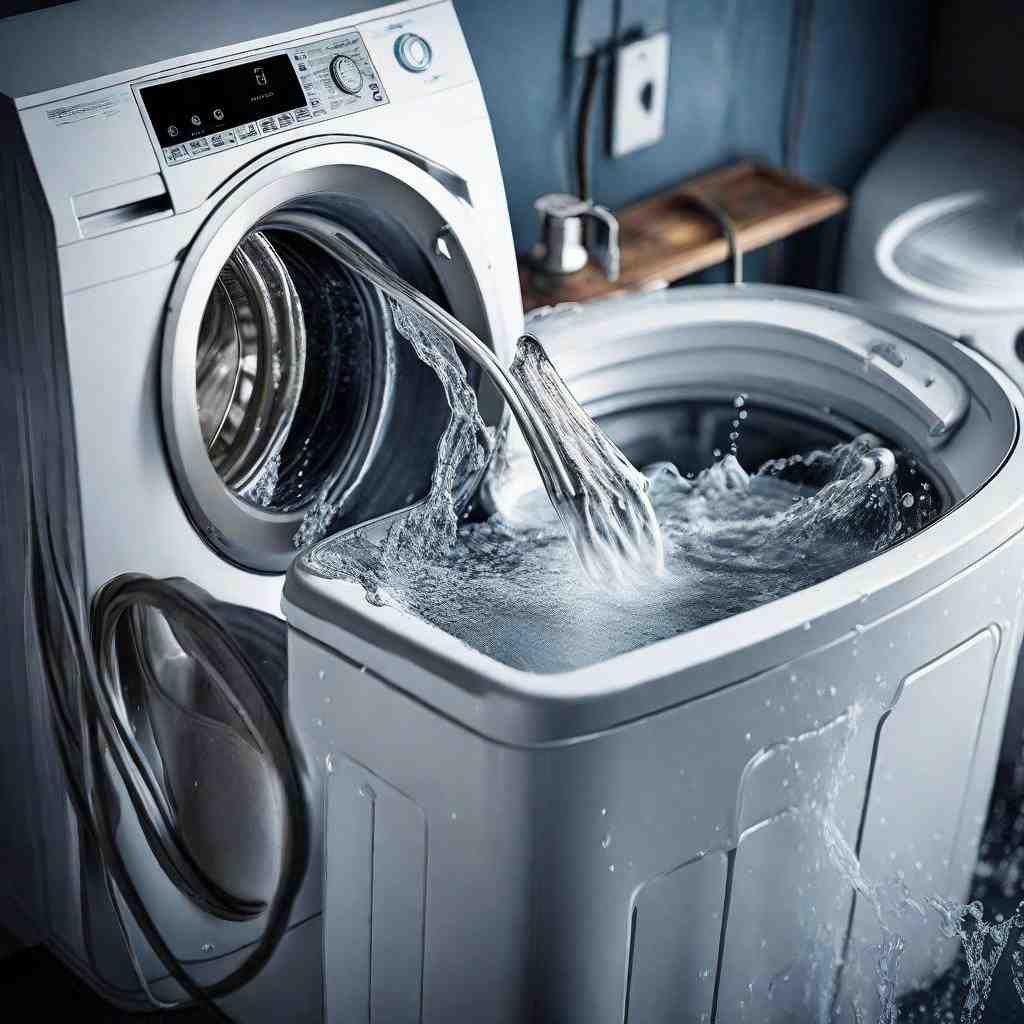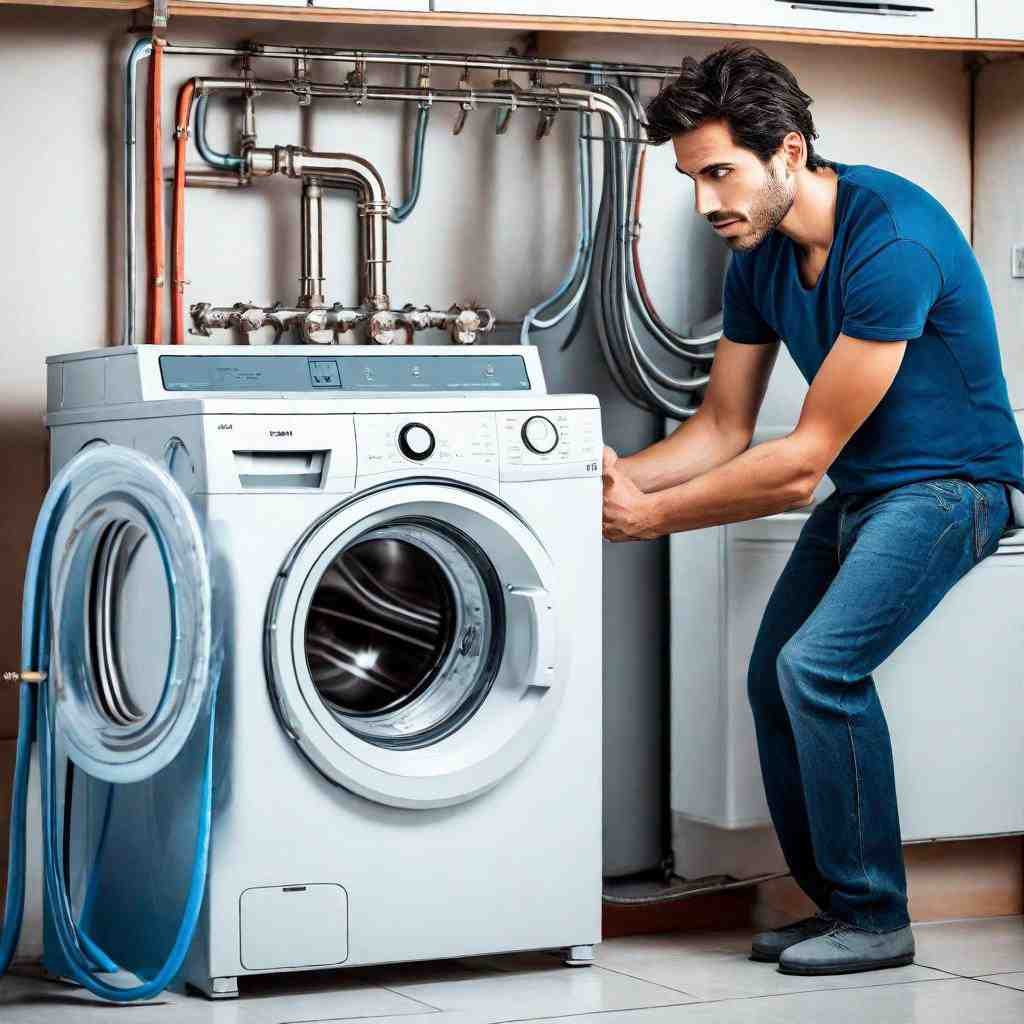Title: how washing machine heats water:

Introduction:
In the introduction, you’ll start by talking about why hot water is important for laundry.
This sets the stage for discussing how washing machines heat water.
You’ll also mention that the process needs to be efficient and safe.
1. Types of Washing Machines:
This part is about the different kinds of washing machines out there, like top-load and front-load machines.
You’ll explain how each type might heat water differently.
2. Heating Elements:
Here, you’ll talk about the main parts inside a washing machine that heat up the water.
This includes things like electric heaters or coils. You’ll explain how these parts work and why they’re important.
3. Temperature Regulation:
This section is all about how washing machines control the temperature of the water.
You’ll mention devices like thermostats and temperature sensors and explain how they help keep the water at the right temperature.
4. Energy Efficiency:
In this part, you’ll discuss why it’s essential for washing machines to use energy efficiently when heating water.
You’ll talk about features that help save energy, like special modes, and give tips on how users can save energy too.
5. Safety Measures:
Here, you’ll cover how washing machines ensure that heating water is safe.
You’ll talk about built-in features that prevent accidents like overheating or electrical issues.
You’ll also give users some tips on how to use their machines safely.
6. Maintenance and Care:
This section is about how to take care of the heating parts in a washing machine to keep them working well.
You’ll give tips on things like cleaning and de scaling and explain how users can tell when something might need fixing.
7. Alternative Heating Methods:
In this part, you’ll briefly discuss other ways washing machines can heat water, like using steam.
You’ll compare these methods to traditional heating and talk about the pros and cons of each.
8. Future Trends:
Here, you’ll look ahead and talk about how washing machines might change in the future.
You’ll discuss new ideas for making machines more efficient and eco-friendly and speculate on what’s next for washing machine technology.
Conclusion:
Finally, you’ll wrap everything up by summarizing what you’ve talked about.
You’ll remind readers why understanding how washing machines heat water is important and encourage them to keep an eye on new developments in the field.
Q1.do dishwashers heat water.
Yes, dishwashers do heat water. Heating water is an essential part of the dishwashing process, as it helps to effectively clean and sanitize dishes, pots, pans, and utensils.
Typically, dishwashers are equipped with heating elements or heating mechanisms to raise the temperature of the water to the desired level for washing and rinsing cycles.
The heating element in a dishwasher works similarly to those found in washing machines.
It’s often an electric element located at the bottom of the dishwasher’s tub. When the dishwasher is turned on, the heating element heats up the water inside the dishwasher to the appropriate temperature for cleaning.
Modern dishwashers are equipped with temperature sensors and thermostats to regulate the water temperature accurately throughout the wash cycle.
This ensures that the dishes are cleaned effectively and that bacteria and germs are eliminated during the cleaning process.
Heating water in dishwashers serves multiple purposes:
1. Cleaning:
Hot water helps to dissolve detergent and remove food particles and grease from dishes more effectively than cold water alone.
2. Sanitization:
High temperatures help to kill bacteria and germs on dishes, ensuring they are thoroughly sanitized.
3. Drying:
Hot water aids in the drying process by evaporating water from the dishes more quickly, leaving them clean and dry at the end of the cycle.
In summary, dishwashers do heat water to facilitate the cleaning, sanitization, and drying of dishes, providing efficient and convenient dishwashing solutions for households and commercial settings alike.
Q2.how to check if washing machine is heating water.

To check if your washing machine is heating water properly, you can follow these steps:
1. Select a Hot Water Cycle:
Start by selecting a hot water cycle on your washing machine.
Most washing machines have specific cycles labeled as “hot” or “warm” water settings.
2. Run the Washing Machine:
Once you’ve selected the hot water cycle, start the washing machine as you normally would for a regular laundry load.
3. Wait for Water Heating:
Allow the washing machine to run for a few minutes to give it time to heat the water.
Depending on your machine, it may take a little time for the water to reach the desired temperature.
4. Check the Water Temperature:
Carefully touch the water inside the washing machine to gauge its temperature. Be cautious not to burn yourself if the water is too hot.
5. Use a Thermometer (Optional):
For a more accurate measurement, you can use a thermometer to check the temperature of the water.
Dip the thermometer into the water while the washing machine is running to see if it reaches the expected temperature for a hot water cycle, typically around 120°F (49°C) to 140°F (60°C).
6. Observe the Steam:
Another indicator of the water heating properly is the presence of steam.
If the water is hot enough, you may see steam rising from the washing machine during the cycle.
7. Monitor the Washing Cycle:
Throughout the washing cycle, pay attention to any noticeable changes in water temperature.
If the water remains cold or lukewarm despite selecting a hot water cycle, there may be an issue with the heating element or thermostat in your washing machine.
8. Consult the User Manual:
If you’re unsure about the expected water temperature or encounter persistent issues with water heating, refer to the user manual provided with your washing machine for troubleshooting tips and instructions.
9. Seek Professional Help if Necessary:
If you suspect a problem with your washing machine’s heating mechanism, it’s best to contact a qualified appliance technician to diagnose and repair any issues to ensure safe and efficient operation.
By following these steps, you can effectively check if your washing machine is heating water as intended, ensuring optimal performance for your laundry needs.
Q3.do i need to connect hot water to washing machine.

No, it’s not always necessary to connect hot water to a washing machine.
Most modern washing machines are designed to work with cold water, meaning they can effectively wash clothes using water straight from the cold water supply line.
However, many washing machines also have the option to connect to both hot and cold water supplies.
If your washing machine has this capability and you choose to connect hot water, it can offer certain advantages:
1. Faster Wash Cycles:
Hot water can help dissolve detergent more quickly, leading to shorter wash cycles.
2. Better Stain Removal:
Hot water is more effective at breaking down and removing tough stains, especially grease and oil-based stains.
3. Sanitization:
Hot water can help kill bacteria and germs more effectively than cold water, providing a deeper level of cleanliness.
Ultimately, whether you need to connect hot water to your washing machine depends on your personal preferences, laundry habits, and the capabilities of your washing machine.
If you’re unsure, consult your washing machine’s user manual or contact the manufacturer for guidance.
Q4.does lg washing machine heat water.
Yes, many LG washing machines have the capability to heat water.
LG offers a range of washing machines with various features and specifications, including models equipped with internal heaters or heating elements.
These heating elements are designed to heat the water to the desired temperature for washing cycles that require warm or hot water.
LG washing machines typically provide users with the option to select different wash temperatures, including cold, warm, and hot settings.
When the hot water setting is chosen, the washing machine activates its internal heating mechanism to heat the water to the appropriate temperature for the selected cycle.
However, not all LG washing machine models may have built-in heaters, especially those designed for more basic or budget-friendly options.
It’s essential to check the specifications and features of a specific LG washing machine model to determine if it includes a heating element for water heating capabilities.
If you’re considering purchasing an LG washing machine and require the ability to heat water for your laundry needs,look for models that explicitly mention the inclusion of a built-in heater or heating element in their features list or product descriptions.
This ensures that the washing machine can accommodate your preferences for warm or hot water wash cycles.


exellent